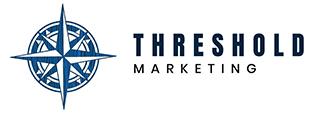Effective client management is essential for building strong business relationships and driving success. By focusing on strategies and practices that enhance client interactions, businesses can ensure their clients’ needs are met while nurturing lasting connections. When executed effectively, client management can lead to stronger relationships, improved communication, and increased client retention.
This article will explore actionable strategies and the numerous benefits of staying organized and proactive in client management.
What Is Client Management?
Client management encompasses a range of activities designed to foster positive relationships with clients. It includes understanding their needs, addressing concerns, and ensuring high satisfaction throughout the client lifecycle. Effective client management goes beyond mere transactional interactions; it involves building rapport, trust, and loyalty that can last for years.
The Role of Client Management Systems
Client management systems are powerful tools that simplify and optimize client interactions. These systems centralize client data, improve communication, and provide actionable insights.
- Streamlining Communication: Systems like CRM software keep all communication—emails, calls, and notes—in one place, ensuring no detail is overlooked.
- Data Insights: Advanced analytics tools help businesses identify trends, track client satisfaction, and predict future needs.
- Task Automation: Automating repetitive tasks like follow-up emails or appointment scheduling frees up time for personalized client interactions.
- Scalability: As your business grows, client management systems make it easy to handle increasing clients without compromising service quality.
Some of the best client management software include Salesforce, HubSpot CRM, and Zoho CRM. These platforms cater to businesses of all sizes and offer customizable features to suit specific needs.
The Importance of Strong Business Relationships
Trust is the cornerstone of any successful business relationship. When clients feel valued and understood, they are more likely to remain loyal to your brand. Building trust requires consistent communication, transparency in dealings, and delivering on promises. By fostering strong relationships, businesses can create a loyal client base that is less likely to switch to competitors.
Effective communication is vital in client management. It ensures that clients are informed about services, changes, or issues that may arise. Regular updates and open lines of communication help prevent misunderstandings and build a sense of partnership. Techniques such as personalized emails, newsletters, or even phone calls can enhance communication efforts.
Actionable Strategies to Improve Client Management
Client management involves more than just handling daily interactions. It’s about creating a structured approach to meeting client needs while fostering long-term loyalty. By following proven strategies, businesses can ensure consistent growth and maintain competitive advantage.
Here are some specific actions you can take to enhance your client management processes:
1. Know Your Clients
Invest time in understanding their preferences, pain points, and goals. Leverage surveys, analytics, and one-on-one meetings to uncover valuable insights. This detailed understanding enables you to offer tailored solutions that address their unique needs and aspirations.
2. Stay Organized
Use spreadsheets, calendars, or advanced client management systems to track interactions, deadlines, and milestones. Organized data ensures nothing falls through the cracks and helps maintain consistency in your communications.
3. Be Proactive
Anticipate client needs by staying informed about industry trends and understanding upcoming challenges they might face. Offering solutions before clients realize the need sets you apart as a reliable partner.
4. Set Clear Expectations
Outline goals, timelines, deliverables, and metrics for success from the start of your relationship. Clear expectations reduce misunderstandings and keep both parties aligned throughout the engagement.
5. Follow Up Regularly
Schedule periodic check-ins or follow-ups after key projects or milestones. This practice demonstrates your commitment to their ongoing success and opens the door for feedback.
6. Leverage Client Management Systems
Incorporate tools like Salesforce or Zoho CRM to centralize client data, track interactions, and automate routine tasks. These systems allow you to focus on strategic initiatives rather than administrative duties.
7. Personalize Interactions
Go beyond generic communication by customizing emails, solutions, and offers to resonate with individual clients. Personal touches make clients feel valued and deepen the connection.
Key Benefits of Effective Client Management
Managing clients effectively fosters loyalty, retains clients, and drives growth. By focusing on clear communication and delivering consistent value, businesses can strengthen trust and establish themselves as reliable partners. Let’s explore the advantages that make client management indispensable for success.
- Stronger Relationships: Building stronger relationships is one of the most significant advantages of effective client management. By consistently engaging with clients and understanding their needs, businesses can foster trust and loyalty, which are essential for long-term partnerships.
- Improved Communication: Effective client management enhances communication between businesses and their clients. Clear, consistent communication helps ensure clients are informed about services, updates, and potential issues. This openness prevents misunderstandings and builds a sense of partnership.
- Increased Client Retention: Retaining existing clientele is often more cost-effective than acquiring new ones. Effective client management practices lead to higher retention rates by ensuring that clients feel valued and satisfied with the services they receive. Satisfied clients are less likely to switch to competitors.
- Enhanced Efficiency: Implementing structured client management processes can significantly improve operational efficiency. By utilizing tools such as CRM systems, businesses can automate routine tasks, streamline workflows, and reduce administrative burdens, allowing teams to focus on delivering value to clients.
- Informed Decision-Making: With efficient client management, businesses gain access to valuable insights about client preferences and behaviors. This information enables leaders to make informed decisions regarding service offerings, marketing strategies, and resource allocation, ultimately leading to better business outcomes.
- Better Client Engagement: Effective management fosters better engagement by encouraging regular interactions and feedback loops. Engaged clients are more likely to participate in discussions about their needs and preferences, leading to improved service delivery and satisfaction.
- Higher Revenue Potential: Happy clients return for repeat business and are more likely to refer others. This organic growth through referrals can lead to substantial revenue increases over time. Additionally, satisfied clients may be open to exploring the business’s new services or products.
- Improved Team Collaboration: Client management promotes collaboration within teams by ensuring that everyone is aligned on client needs and expectations. When team members can access shared information about clients, they can work together more effectively to deliver a cohesive service experience. This revised section highlights the benefits of effective client management while maintaining clarity and engagement.
Implementing Best Practices in Client Management
Businesses must adopt best practices that promote consistency and excellence in their interactions. These practices streamline processes and enhance the overall client experience. Below are some key best practices to consider.
Choose the Right Client Management Software
Selecting the best client management software tailored to your business needs is crucial:
- Assess Your Needs: Identify what features are most important for your business—such as contact management, reporting capabilities, or integration with other tools.
- Compare Options: Research various CMS options available in the market and read reviews from other users.
Create a Client-Centric Culture
Fostering a culture focused on client satisfaction within your organization can yield significant benefits:
- Employee Training: Ensure all team members understand the importance of client management and receive training on best practices.
- Empower Employees: Encourage employees at all levels to take ownership of client relationships.
Review Client Feedback Regularly
Establishing a system for regularly reviewing client feedback is essential for continuous improvement:
- Implement Feedback Loops: Create mechanisms for gathering and analyzing client feedback to identify improvement areas.
- Act on Insights: Use the feedback to make informed changes to services or processes that enhance the client experience.
Foster Long-Term Relationships
Focus on building long-term relationships rather than just transactional interactions:
- Personal Touches: Celebrate milestones such as anniversaries or project completions with personalized messages or gestures.
- Value-Added Services: Offer additional services or resources to help clients achieve their goals, reinforcing your commitment to their success.
Establish Clear Communication Protocols
Ensure communication protocols are well-defined and accessible:
- Multiple Platforms: Provide clients with various ways to reach out, whether through email, phone, or messaging apps.
- Timely Responses: Set expectations for response times and ensure that your team adheres to them.
Encourage Cross-Department Collaboration
Promote collaboration across different departments within your organization to enhance client service:
- Shared Goals: Align teams around common objectives related to client satisfaction and retention.
- Regular Interdepartmental Meetings: Facilitate meetings where teams can share insights about client interactions and strategies.
Monitor Industry Trends
Stay informed about industry trends that may impact your clients:
- Market Research: Regularly conduct research to understand changes in your clients’ industries.
- Proactive Adaptation: Use insights from market research to adapt your services or offerings accordingly.
Driving Growth Through Client Success With Threshold Marketing
Client management is a transformative practice that fosters trust, loyalty, and sustainable growth. It enables businesses to anticipate client needs, deliver exceptional service, and create a foundation for mutual success. By staying organized, leveraging client management systems, and maintaining a proactive approach, companies can nurture relationships that drive long-term value.
At Threshold Marketing, we understand that client management is the cornerstone of successful business relationships. Our team is dedicated to helping businesses strengthen connections and achieve sustainable growth. We offer tailored strategies and solutions to ensure you meet your clients’ unique needs.
By prioritizing effective client management, you enhance satisfaction and position your business for future opportunities. Strong client relationships lead to increased referrals and repeat business, ultimately driving revenue growth. To learn more, contact us today. Let’s partner to elevate your client relationships and achieve lasting success.

